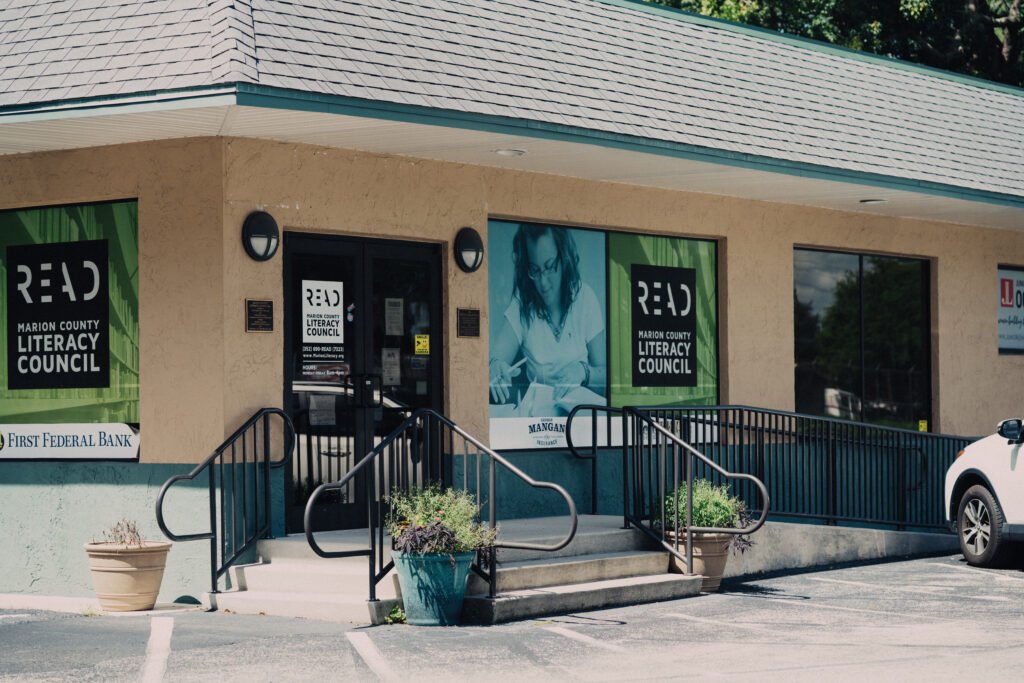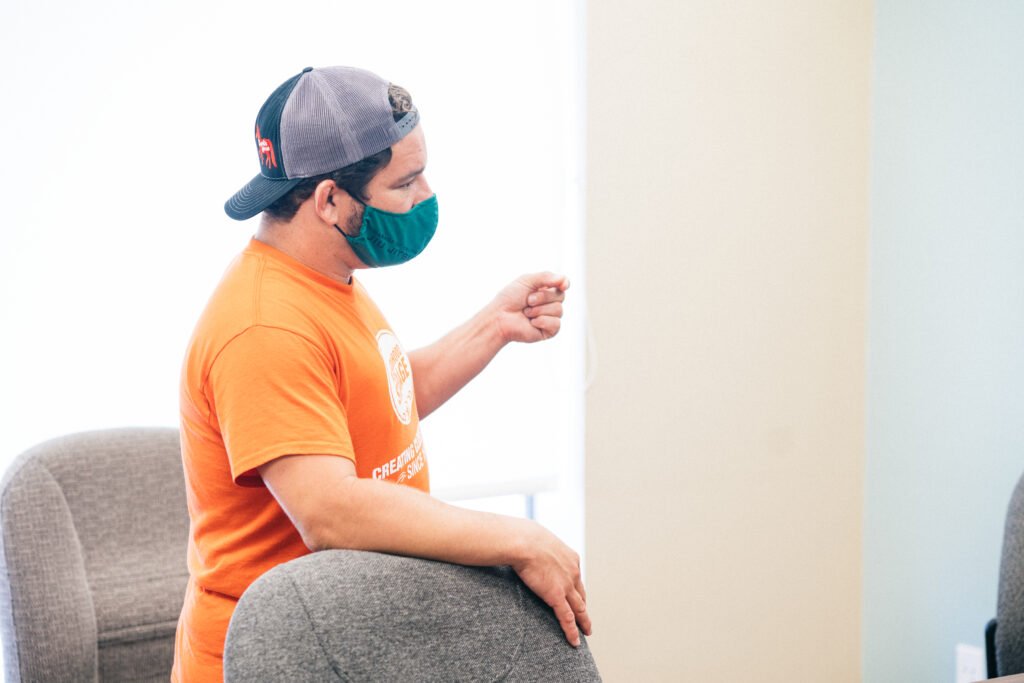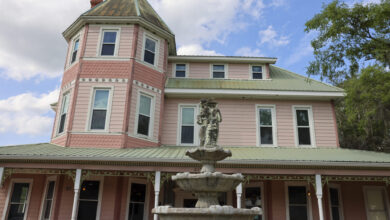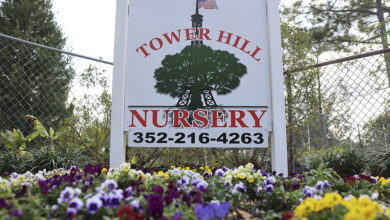Marion County Literacy Council tackles the problem of adult literacy in our community
BY CARLTON REESE | PHOTOGRAPHY BY JOSHUA JACOBS

The abundance of breathable oxygen, the taste of food on the tongue or reliable shelter in a storm: All simple and commonplace matters of our existence we take for granted, rarely giving more than a thought during the course of a day. Remove any of these and their importance suddenly dwarfs any other hardship faced.
The ability to read for most of us falls in line with many activities relegated to mere afterthoughts, but approximately 20 percent of fellow Marion County citizens would disagree. Those are the 20 percent of adults here who are classified as functionally illiterate.
Unable to understand a restaurant menu or instruction manual, the functionally illiterate among us face not only an embarrassing stigma, but also the greatest obstacle toward financial success. Most are adept at hiding this reading deficiency but will likely never be able to parlay their otherwise hard-work ethic into significant career advancement.
The Marion County Literacy Council is stepping in to help reverse this trend and provide a “hand up” as opposed to a “hand out” to these adults in need.
“I don’t know that people fully appreciate how serious a problem it is,” said MCLC Executive Director R.J. Jenkins. “It’s not just a human problem, but a real economic problem for our city and for Marion County. It’s difficult to have a growing and prosperous economy when 20 percent of your population is functionally illiterate.
“We have a big job ahead of us.”
The MCLC, with over 75 volunteer tutors, helps around 500 Marion County adults each year and the success stories are overwhelming and heartwarming. Some fell through the cracks in the educational system while many are learning English as a second language. All have one thing in common: Improve their own lives and the lives of their families.
The MCLC utilizes a three-pronged attack in combatting illiteracy: 1. Adult Basic Education program which helps adults learn to read or improve reading skills; 2. GED program which helps adults earn their high school equivalency diploma; 3. ESOL program which is to help non-English speaking adults become more capable and competent speakers of the language.
“One of the things that’s important for people to understand about the work we do, it takes tremendous courage for people to seek our services,” Jenkins said. “There is a kind of filter on the front door of our building and that filter is for courage. People don’t walk into our building unless they’ve made a decision to do something to better their lives and the lives of their children.
“It takes a lot for a grown woman or grown man to admit they have trouble reading – there is still, unfortunately, a bit of a stigma around some of this kind of help. That’s a challenge for us. It’s difficult for us to get to the people who need us most because they’re intimidated or frightened.”
The numbers for the past year have been quite encouraging for the MCLC:
- 15,000 hours of volunteer tutoring equal to over $370,000 worth of services
- 100 hours of adult tutoring and instruction leading to an average $10,000 increase in annual incomes
- 20 adults sent through the Equal Opportunity Program at the College of Central Florida to help pay for GED and further their education
- 223 adults increased their English skills by one grade level per semester
- 30 adults received their GED
- 40 adults increased their reading by more than two levels in the ABE program
The numbers are nice, but the human stories paint a better picture. Even during the pandemic as the MCLC’s doors were closed, one student stuck to his guns with online tutoring and passed his GED exam. Another lacking computer literacy was kept from professional advancement, but after three weeks of one-on-one tutoring had mastered the skills that would secure him a promotion.
The MCLC’s annual report notes one man from Cuba who spoke virtually no English before enrolling in ESOL classes. Now, he is a student at the College of Central Florida with plans to transfer to the University of Florida and major in engineering.
The council relies heavily on the work of program coordinator Yamila Acosta, who oversees the volunteers.
“She is the face of our organization as far as our students are concerned,” Jenkins said. “There is not a person in Marion County who receives services from us and doesn’t know who Yamila is. She is an astonishing person and is really the heart of the organization. She works tirelessly to make sure folks get access to these life-changing services.”

Jenkins is quick to point out that although the MCLC operates with volunteer tutors and relies heavily on the support of donors, the program is not free for the students. There is a $40 registration fee that covers unlimited support for an entire semester.
“That does two things: It obviously provides a very small amount of support for our organization, but it also means that the people who seek our services have some skin in the game,” Jenkins said. “They have made an investment in their own education. It resonates with our donors that our students our also invested in their education, that this in not a hand-out but rather a hand-up organization.”
The MCLC, in addition to reading services which include group and one-on-one instruction, also offers help in the realm of math, financial and computer literacy. Even adults seeking treatment for drug and alcohol abuse at Phoenix House in Citra can take GED classes there and elsewhere such as in Marion Oaks and at College Park Elementary School.
The physical facility had been closed during the pandemic and is now enjoying a soft opening. During this time, students have been tutored online and the MCLC seems to have navigated the crisis thanks to its minimal bureaucracy and generosity of its donors.
“We have tremendous support from our community and we are a really lean organization,” Jenkins said. “We have not experienced the kind of financial hardships that some non-profits have.”
For more information
The Marion County Literacy Council is located at 120 SW 5th Street in Ocala. Anyone who would like to donate money or services may phone 352-690-7323 or visit www.marionliteracy.org for more information.






